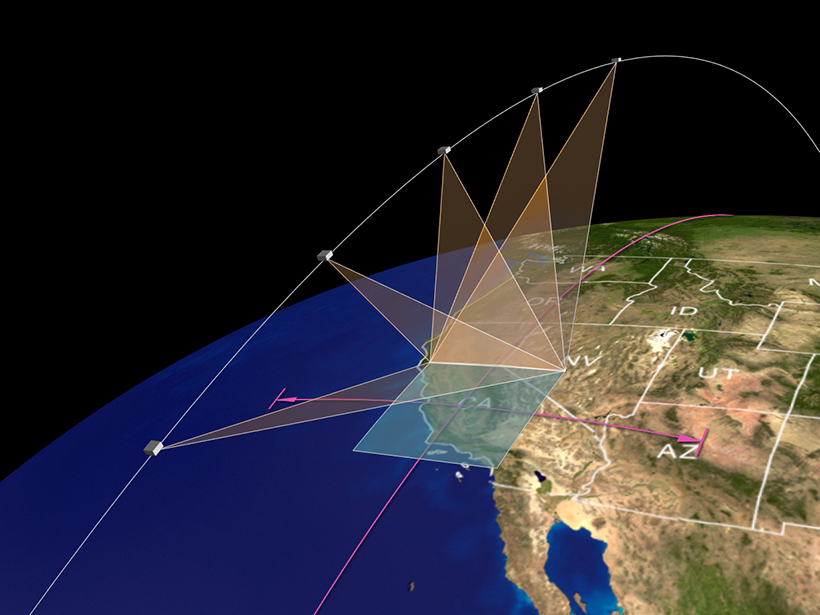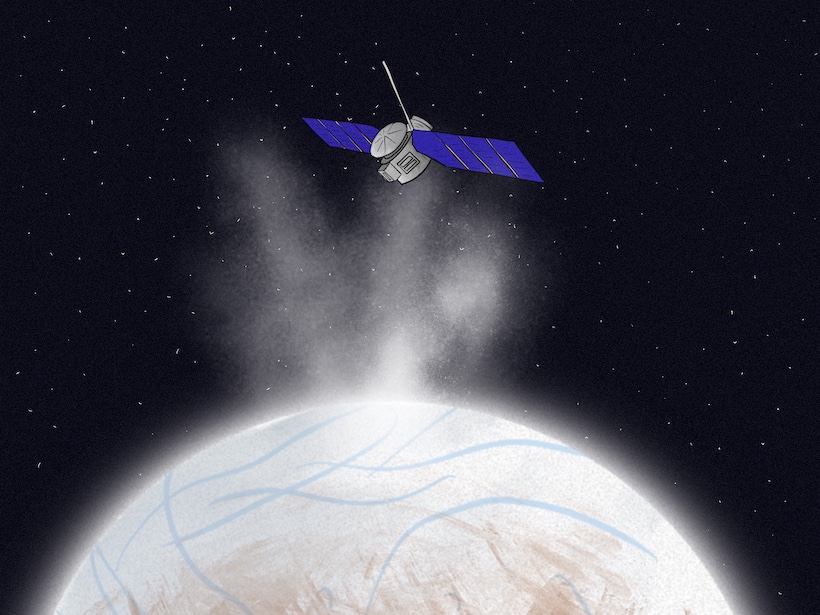Behind Uganda’s lavish beauty, climate change has taken its toll: Death, destroyed properties, and displaced communities increase as above-normal rainfall floods the country.
News
Using Satellite Data to Map Air Pollution and Improve Health
NASA scientists will be teaming up with epidemiologists in the agency’s first health-focused mission. With satellite data, they’ll find out how air pollution affects health in cities around the world.
Esta búsqueda por vida alienígena comienza con la destrucción de bacterias en la Tierra
Algún día, un catálogo de fragmentos moleculares podría ayudar a científicos a identificar vida extraterrestre en las lunas heladas de nuestro sistema solar.
Turf’s Dirty Little Secret
Greenhouse gas emissions from sports fields may be scoring points for climate change.
Soil Chips Help Scientists Spy on Fungal Navigation
Soil chips provide a micrometer-resolution window into life underfoot, shedding light on how fungi behave when navigating soil’s mazes.
Making the Universe Blurrier
Climate change appears to be directly and indirectly affecting the view from at least one observatory while threatening the existence of others.
Migrant Workers Among the Most Vulnerable to Himalayan Disasters
Critics say companies are failing to develop adequate emergency procedures to protect construction workers on hydropower plants in the Himalayas.
A Space Hurricane Spotted Above the Polar Cap
Researchers have identified a high-latitude phenomenon that looks remarkably like a tropospheric hurricane, with spinning arms of plasma and a shower of electrons.
A Reminder of a Desert’s Past, Before Dingo Removal
A fence spans Australia’s Strzelecki Desert, keeping dingoes out of the southern side. Drone and satellite technology have illustrated how removing this top predator changes vegetation growth.
Rare Wintertime Thunderstorms Recorded over the U.S. Gulf Coast
“Thundersnow”—thunderstorm activity accompanying a winter storm—was spotted near southern Texas earlier this year.










